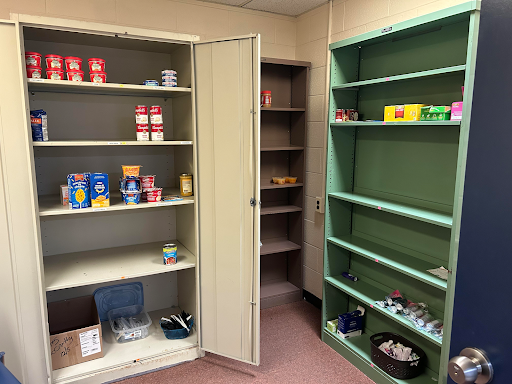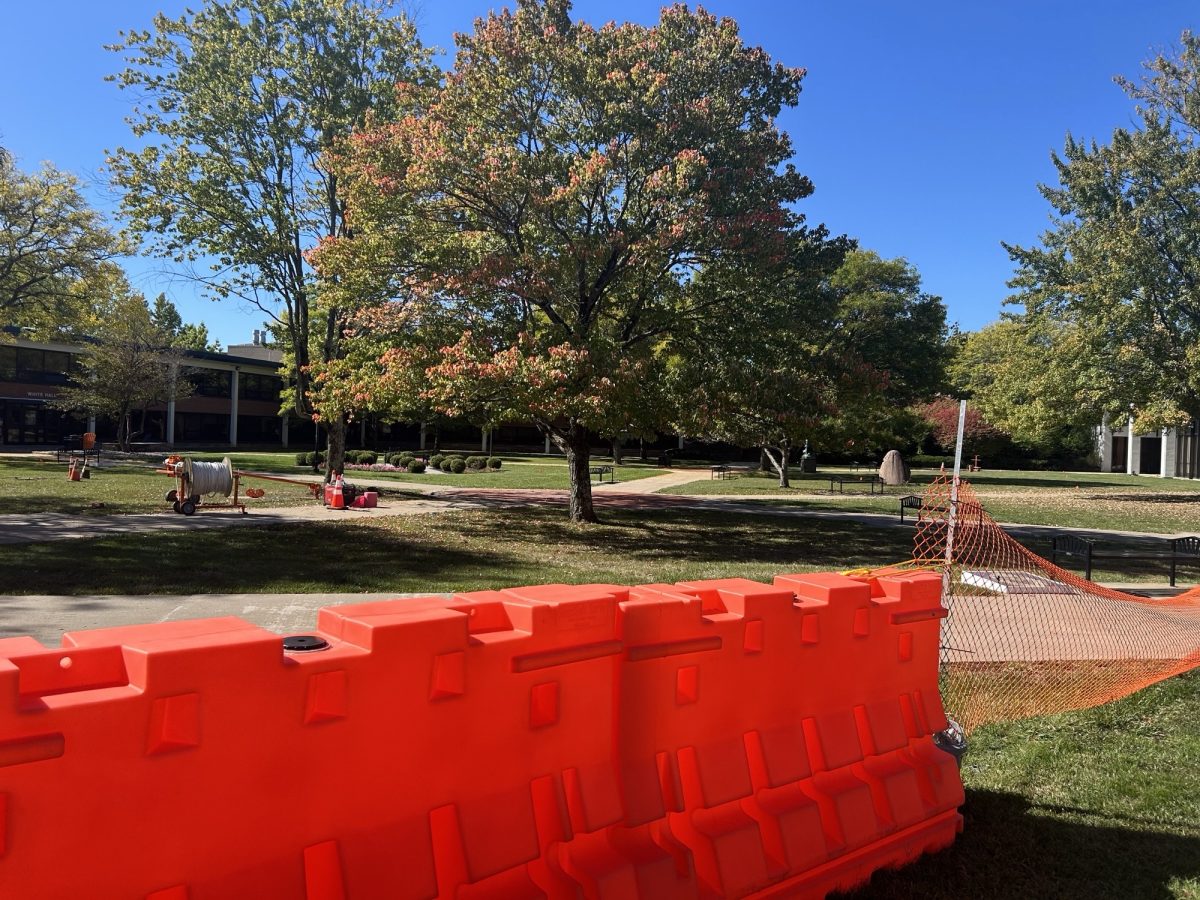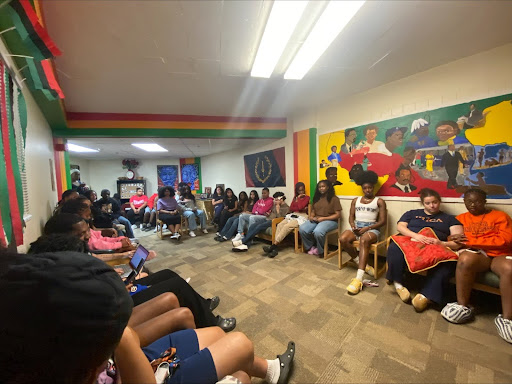The Tangerine Grove, Utica University’s free on-campus food and personal care pantry is facing an uncertain future as a major source of its funding because an annual grant from the national nonprofit Swipe Out Hunger has not been renewed for the fall.
Founded in January 2020 after months of planning and research during the fall 2019 semester, the Tangerine Grove was created to meet a critical need on campus. According to the Utica University website, its mission is to alleviate hunger at Utica University by providing students and staff in need with food, education and resources to meet ongoing food insecurity.
According to Erin Kelly, pantry coordinator, the Tangerine Grove opened for two months in 2020, and then the COVID-19 pandemic forced the campus to shut down. The pantry remained closed for the entire 2020 – 2021 academic year and reopened in November 2021. Since then, it has stayed consistently open, largely thanks to volunteer efforts, grant funding and donations from individuals and organizations.
The pantry’s biggest financial support came from Swipe Out Hunger, a national organization dedicated solely to supporting college food pantries. The Tangerine Grove received grants from them in both Fall 2022 and Fall 2023, along with additional support from another charitable organization. However, this year’s application was not successful.
“There were more pantries that applied this year, and [Swipe Out Hunger] didn’t have enough funding for all,” Kelly said. “We don’t have a regular budget right now but we are actually speaking with administration as far as trying to secure or find somebody who is a potential donor to provide some funding. It could be someone affiliated with the campus but not necessarily work here. They are trying to make that connection for us.”
In the 2023–2024 academic year, the pantry had over 2,000 individual visits. So far in 2024, 140 new clients have registered. On an average day, the pantry receives about 8 to 10 visits.
Currently, the Tangerine Grove operates mainly on grants and donations. Several food drives are held throughout the year, and contributions from faculty, staff, and academic departments help keep the shelves stocked. Student volunteers also play a huge role, committing as little as one hour a week to keep the pantry open during operating hours, typically between 10 a.m. and 5 p.m., Monday through Friday. A QR code displayed on TVs across campus links to the pantry’s live weekly schedule, which depends on volunteer availability.
One key initiative planned for the end of the semester will allow students to donate any unwanted, unused food before they move out. Bins will be placed in residence halls to collect non-perishable items that can go directly to the pantry. Last year, this effort brought in a large amount of food, though it also served as a reminder to be mindful of expiration dates. “We came across some instant stuffing mix from 2020,” Kelly said.
Kelly said the closure of the pantry could profoundly affect students who rely on it.
“I don’t think the price of food is going down soon, and we know the biological need for food to make the brain function properly,” Kelly said. “It’s going to make it harder for them to sit in class and learn.”
For Kelly, she returned to school to become a dietitian to pursue a deeper purpose in food accessibility.
“I became a dietitian not really knowing why,” she said. “But doing this made me realize it’s more important to me that people have access to food than telling them what they should eat. Just having food is the most important thing.”
The Tangerine Grove is calling on the Utica University community for support. Donations of food, personal care items like toothpaste and soap, and financial contributions are welcome. Volunteer support and simply getting the word out are essential to keeping the pantry going. For more information or to donate to Tangerine Food Grove, contact Erin Kelly at [email protected]
Kelly added: “I think it’s important to spread the word that we exist. Anyone who wants to help can reach out, and we can figure out how they can help us or how we can help them.”











































































































































